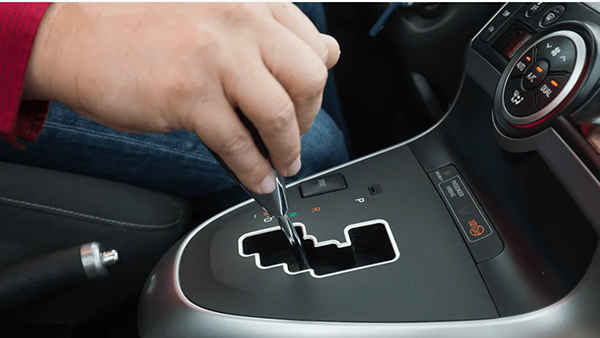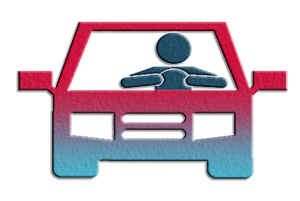What happens if you turn your car off without putting it in park?
When you turn off your car without putting it in park, several things can happen depending on the type of transmission (automatic or manual) and whether the parking brake is engaged.

Here’s a detailed list and description
- Automatic Transmission, Not in Park:
Rolling Risk: If the car is not in park and the parking brake is not engaged, there is a risk of the vehicle rolling away. This happens because the transmission is not holding the vehicle stationary.
Safety Concern: It poses a safety hazard, especially on inclines or when parked in busy areas where rolling could lead to accidents or damage.
Example: You park on a slight incline, turn off the engine without putting it in park or engaging the parking brake. The car starts rolling backward, potentially hitting another vehicle.
- Manual Transmission, Not in Gear:
Rolling Risk: Similar to automatic cars, if a manual transmission car is not left in gear (typically first gear or reverse), it can roll away if the parking brake is not applied.
Less Common Issue: Manual transmissions usually require the car to be in gear to start, reducing the likelihood of forgetting this step.
Example: You park a manual transmission car on a flat surface, turn off the engine without leaving it in gear or applying the parking brake. The car starts rolling because there’s no gear engaged to hold it.
- Impact on Ignition and Electrical System:
Ignition Lock Mechanism: In most modern cars, the ignition lock prevents you from removing the key unless the car is in park (for automatic) or neutral (for manual). Not putting the car in park can strain this mechanism over time.
Battery Drain: Leaving accessories like lights or the radio on without the engine running can drain the battery faster.
Fact: Some older cars with worn-out ignition mechanisms might allow the key to be removed without the car being in park, leading to unintended movement.
- Wear on Transmission Components:
Transmission Wear: Continuously moving the gear selector without the engine running can wear out the transmission components over time.
Sticking Shifters: In some cases, not putting the car in park can cause the gear shifter to stick or become difficult to move in subsequent uses.
Fact: Mechanics often see cases where repeated misuse of the gear selector or parking mechanism leads to costly repairs due to premature wear.
- Legal and Insurance Implications:
Insurance Claims: Accidents caused by the car rolling away due to not being in park can lead to insurance claims and potential liability issues.
Legal Consequences: Depending on local laws, not properly securing a parked vehicle can result in fines or penalties.
Fact: Many insurance policies require vehicles to be properly secured when parked to ensure coverage in case of accidents.
In summary, it’s crucial to always ensure your car is in park (automatic) or in gear (manual) and the parking brake is engaged before turning off the engine. This simple step can prevent accidents, damage to the vehicle, and ensure safety for both the car and its surroundings.
Facts


Here are some real-life examples that illustrate what can happen when you turn off a car without putting it in park:
Neighborhood Incident:
Example: A resident in a suburban neighborhood parked their car in the driveway on a slight incline. They turned off the car without putting it in park or engaging the parking brake. The car rolled down the driveway, across the street, and into a neighbor’s yard, damaging their fence and garden.
Outcome: The car owner had to pay for the fence repairs and faced an increase in their insurance premiums due to the claim.
Parking Lot Mishap:
Example: In a busy shopping mall parking lot, a driver turned off their automatic transmission car without putting it in park. The car started rolling slowly and hit another parked car, causing minor dents and scratches.
Outcome: The incident was caught on the mall’s security cameras, and the driver was held responsible for the repair costs of both vehicles.
Manual Transmission Roll:
Example: A college student parked their manual transmission car on campus. They turned off the engine without leaving it in gear or setting the parking brake. The car rolled backward into a bike rack, damaging several bicycles.
Outcome: The student had to cover the cost of repairing or replacing the damaged bikes, and the incident was reported to campus security, leading to a warning.
Street Parking Accident:
Example: In a city with steep streets, a driver parked their car on a hill without putting it in park or using the parking brake. The car rolled down the hill, hitting a parked car and causing a chain reaction that damaged multiple vehicles.
Outcome: The driver faced significant liability for the damages and had to deal with legal and insurance issues. Local authorities also issued a fine for improper parking.
Ignition Lock Failure:
Example: An older vehicle had a worn-out ignition lock mechanism that allowed the driver to remove the key without the car being in park. One day, the driver forgot to put the car in park, and it rolled forward into a garage door.
Outcome: The repair costs for the garage door were significant, and the car owner decided to replace the faulty ignition lock to prevent future incidents.
These examples highlight the importance of always ensuring your car is securely parked before turning off the engine. The consequences of forgetting this simple step can range from minor inconveniences to significant financial and legal issues.












